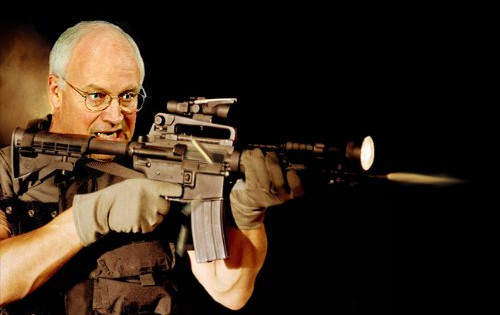
Emancipation
Picture yourself at Marine Corps boot camp. The state has taken your hair and that of every other recruit. From the back of a perfectly spaced formation of bodies, you see a sea of shaved heads, identical in their infantile hairlessness. To enter this cradle of a very unique sort of citizenship, you have divorced yourself from your friends, your family, your home and your belongings. You have even divorced yourself from your self in a sense. There is no more "I," "me," or "us." Everything is "this recruit" or "these recruits." After a few days screaming at the top of your lungs, you will also literally lose your voice.
Emerging from the belly of the state, bald and uniformed, you are now a new creature - for whom duty trumps particularism or emotional, localized loyalites.
Now this experience, which I have tasted myself, is an apt metaphor for the modern condition of a citizen in a liberal state. We see each other as equals, but with that flattening of the social landscape comes an abstraction and a struggle to make it a reality, wherein the state both robs us of our selves to serve its own interests, and frees us from our selves for our own sake.
Emancipation. The act of breaking the chains of bondage and setting people free. Many act of emancipation are preceded by terror or uncertainty from all parties regarding the forces that liberation might unleash. Once the chains are broken and the master and slave shred their respective roles, what chaos will be left? Conservative voices have long cautioned against too hasty or comprehensive forms of emancipation. They tell us it is better to stick with the imperfect oppresive regimes we have than potentially worse off post-liberation layouts.
When I speak of emancipation I am speaking more broadly than literal slavery. I refer the ways a modern liberal state could liberate it's citizens, through education, legislation and coercion, from various forms of religous, ethnic and local identity. A liberal education might free an Amish child to become an astronaut or a Marine or a porn star.
I hope the paradox I am after is emerging for the reader... Emancipation we often think of as the removal of oppression, the establishment of noninterference rights, rights to be left alone. But for a modern liberal state, emancipation isn't just stepping out from under the thumb of oppression, it is assuming an entirely new role that comes with its own set of restraints. To be emancipated is to be integrated into an organization of equals. Political equality and emancipatory liberalism are bound up with an ideal of neutrality that pushes us towards a thin sort of sameness. Emancipation is a process worth examining, because it comes with its own measure of frictions and sacrifices. I guess I'm just riffing on an age old question --- How do we balance freedom and equality, sameness and difference?
Emancipation of the human race: could it require something that does not look anything like freedom as we understand it?
With the internet, I can hop on Google Earth. Here is a whole new emancipation. I can step outside my body and view any corner of creation. Take the SAFE SEARCH off your Google and, trust me, you can step into any moral corner of the world too. You can use Facebook to peer into the lives of others, and they can peer into yours. The modern "you" is increasingly transparent, and rootless. If liberalism offers a program to unlock human potential through emancipation, then we have to ask what will lie before us when the dust settles? Will liberalism offer us a world with no masters, or are we after the freedom to choose who we bow to?
Perhaps as we stand in the Age of Google, in the doorway of the 21st century and beyond, we are all like those boot camp recruits. Reborn. Emancipated from our old selves and struggling to understand our new roles.
Patrick Henry said, "Give me liberty or give me death!"
Modernity opens the door for a third option. An abstracted, uniformed equality, forged in the metaphoric boot camps of our world -- animated with a boundless, liquid hybrid identity, made possible by the sea of information, communication and identity experimentation unleashed by the internet.
Give me liberty... or something else?




